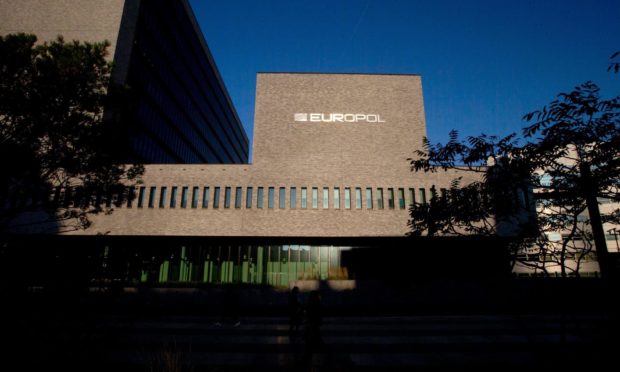The UK does “not have as much influence or as much voice” within a major European law enforcement agency post-Brexit, says a police chief.
Deputy chief constable Will Kerr also told MSPs on the policing sub-committee at Holyrood that the “complete loss” of the Schengen Information System (SIS2) is a “significant loss to law enforcement across the UK as a whole”.
Following Brexit, the UK automatically forfeited its membership of institutions such as Europol, Eurojust, the European Arrest Warrant and real-time sensitive data-sharing agreements such as SIS2.
Mr Kerr says third-party access to Europol – the law enforcement agency of the European Union – has allowed police to retain the “vast majority” of its current capabilities.
However, the police constable said while the UK was previously a “big player” within the organisation, “some influence” has been lost as a result of Brexit.
Organised crime and terrorism
Mr Kerr said: “We’ve retained the capabilities but we certainly don’t have as much influence or as much voice.”
Europol handles criminal intelligence and combats serious international organised crime and terrorism.
Assistant chief constable Patrick Campbell, who works within organised crime, counter-terrorism and intelligence, told MSPs the UK is excluded from a number of the various forums within Europol.
But said having that third-party presence is still “significant”.
The UK has also lost access to the EU’s Schengen Information System database of alerts about people and stolen items, such as guns and cars, which it had been using since 2015.
As a result some 40,000 alerts on dangerous criminals and wanted suspects had to be deleted at the end of December when the UK left the EU.
British negotiators had sought to maintain access to the system as part of a deal, following concerns raised by police chiefs, but the EU said it was legally impossible to offer access to any country not in the Schengen area, including the UK.
Mr Kerr told MSPs that Police Scotland has maintained “very strong relationships across the UK and with international partners” since Brexit.
This has included the retention of the force’s seconded inspectors both with Europol and Interpol, which the police chief described as “massively beneficial”.
However, Mr Kerr described losing access to the information database as a “significant loss to law enforcement across the UK as a whole.”
He added that officers are still working within a three-month grace period in the EU where they have been permitted to continue existing inquiries only using the existing SIS2 database.
Plugging the gap…
The Scottish Parliament evidence session follows a former British diplomat telling MPs the biggest challenge facing law enforcement after Brexit is having to “plug the gap” left by losing access to the European criminal database.
Sir Julian King, ex-commissioner for the security union, told MPs earlier this month that “data adequacy” for police was the “most significant, outstanding, unresolved issue” that had come out of the UK’s security agreement within the EU.
Police and other law enforcement bodies are relying on receiving the same information through Interpol red notices – which, unlike SIS2, is not automated so entries must be uploaded manually once officers decide whether the information warrants being circulated.
Mr Kerr, who is meeting with the Interpol director on Thursday, said while their system is “very good”, it is “not as good as what existed before with live-time alerts under the Schengen Information System”.
He added: “We will never fully replicate what we had under SIS2. It will be slower, it will be more bureaucratic, it will be slightly more burden.
“We are just going to have to mitigate that as best we can.”



